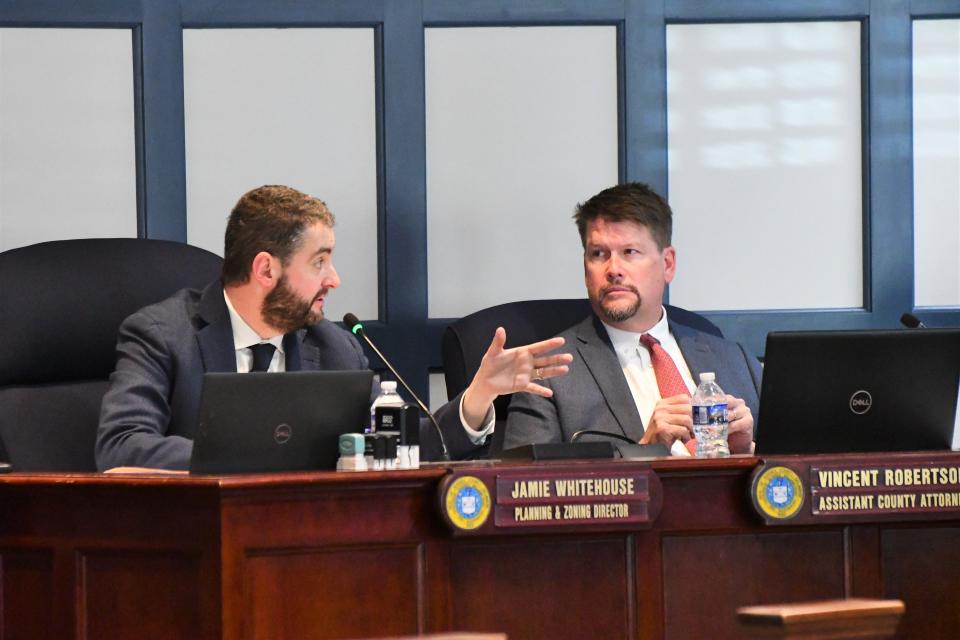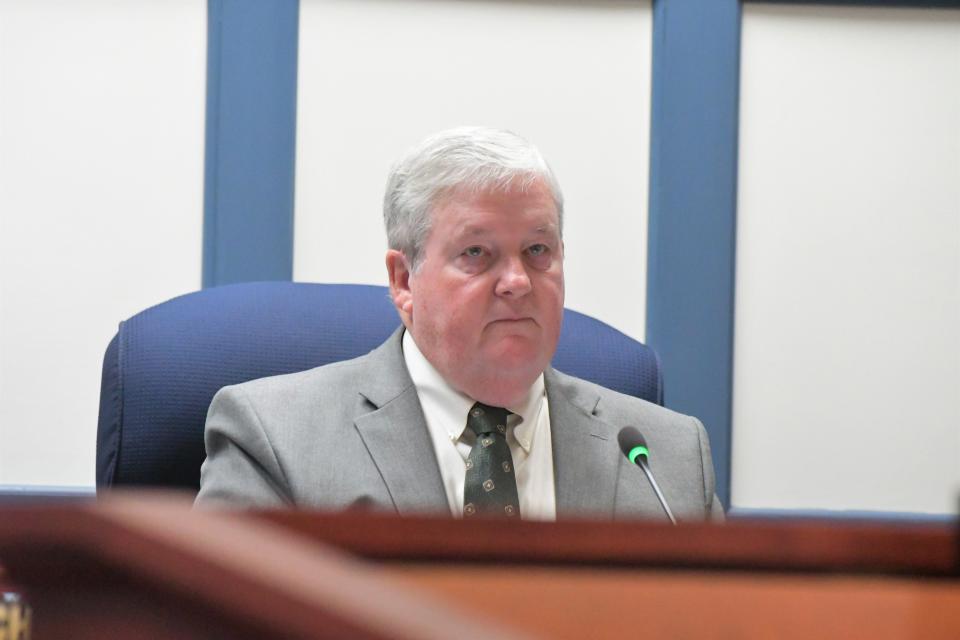Sussex County Council to vote on where marijuana businesses can be located
After Delaware legalized recreational marijuana last year, Sussex County officials are preparing to adopt marijuana business regulations before new state laws are expected to take effect July 5.
After the state laws are in place, the Office of the Marijuana Commissioner will issue licenses for 60 cultivators, 30 manufacturers, 30 retailers and five testing facilities. While municipalities can ban such facilities, the counties can only regulate them by limiting which zoning districts they can be built in and other land-related laws.
Sussex County staff has authored a proposed ordinance to do just that. In recent months, county attorney Vince Robertson has been busy explaining what's proposed in presentations to the County Council and Planning and Zoning Commission.
All marijuana facilities, be they retail, cultivation, manufacturing or testing, will need zoning approval from Sussex County before being granted a state marijuana business license, Robertson said. Retail businesses will also need a conditional use permit from the County Council.

If adopted as proposed, the ordinance would allow cultivation, manufacturing and testing facilities to operate in a variety of zoning districts, including agricultural-residential, which makes up most of the county.
"There is no public access to these facilities and no retail sales may occur," Robertson wrote in a letter to the council. "In fact, the cultivation facilities that currently exist in Delaware are in otherwise nondescript (but highly secured) buildings on land that is zoned for not only agricultural use but also for business and commercial uses. It can occur in converted poultry houses or in warehouse buildings on commercially or industrially-zoned land."
More: Delaware lawmakers vote to expand access to medical marijuana. Send bill to Gov. Carney
Retail marijuana stores would only be allowed in C-3 heavy commercial districts if the ordinance is adopted as proposed.
When asked how many acres of Sussex County are zoned C-3, county spokesman Chip Guy said via email that he does not have those figures.

It's hard to accurately determine how many acres are zoned C-3 using the county's online zoning map. Parcels that have split zoning don't indicate the acreage of each section. However, slowly combing through the county, adding up the acreage and making an estimate or two appears to show about 105 acres of C-3 zoning. That's about one-sixteenth of a square mile, out of the county's total 938 square miles.
Any marijuana retail establishments proposed to be built outside that acreage would require a change of zone vote from the County Council. Pre-existing medical marijuana facilities would be grandfathered into the ordinance, regardless of where they're located, Robertson said.
More: 200 new homes coming after April land use decisions in Sussex County
Even with C-3 zoning, retail marijuana stores will be excluded in some areas due to other requirements. The Sussex ordinance proposes marijuana businesses be 3 miles from any municipal boundary, other retail marijuana store, church, school, college or substance abuse treatment facility.
In addition, most Sussex municipalities have prohibited marijuana businesses within their limits.

County Councilman John Rieley had the most to say about the draft ordinance, suggesting the regulations for non-retail marijuana businesses should be stronger.
"Reasonable people can disagree whether they want this to be located next to them, and I'm wondering if it wouldn't be more appropriate to make those as a conditional use and give future councils a little bit more discretion in approving where these facilities go," Rieley said at a meeting.
"This isn't set in stone," Robertson said. "Certainly, this ordinance is subject to change."
Rieley also took issue with the wording of certain parts of the ordinance, including the part that states, "This Ordinance promotes and protects the health, safety, convenience, orderly growth and welfare of the inhabitants of Sussex County."
"I am not voting for that," Rieley said. "You cannot argue to me that this promotes the health of Sussex County."
Despite his concerns, Rieley introduced the ordinance, setting it up for a future public hearing and vote, because "it's being forced down on us by the General Assembly" and he "would rather have some say rather than no say."
The Planning and Zoning Commission held a public hearing on the matter in April, at which no one commented. They later voted to recommend the County Council adopt the ordinance.
The County Council will hold a public hearing at its May 14 meeting, according to Guy, and may vote on the ordinance after or defer to a later date. County meeting schedules and agendas can be found at sussexcountyde.gov.
Shannon Marvel McNaught reports on southern Delaware and beyond. Reach her at smcnaught@gannett.com or on Twitter @MarvelMcNaught.
This article originally appeared on Delaware News Journal: How Sussex County plans to regulate marijuana businesses through zoning

